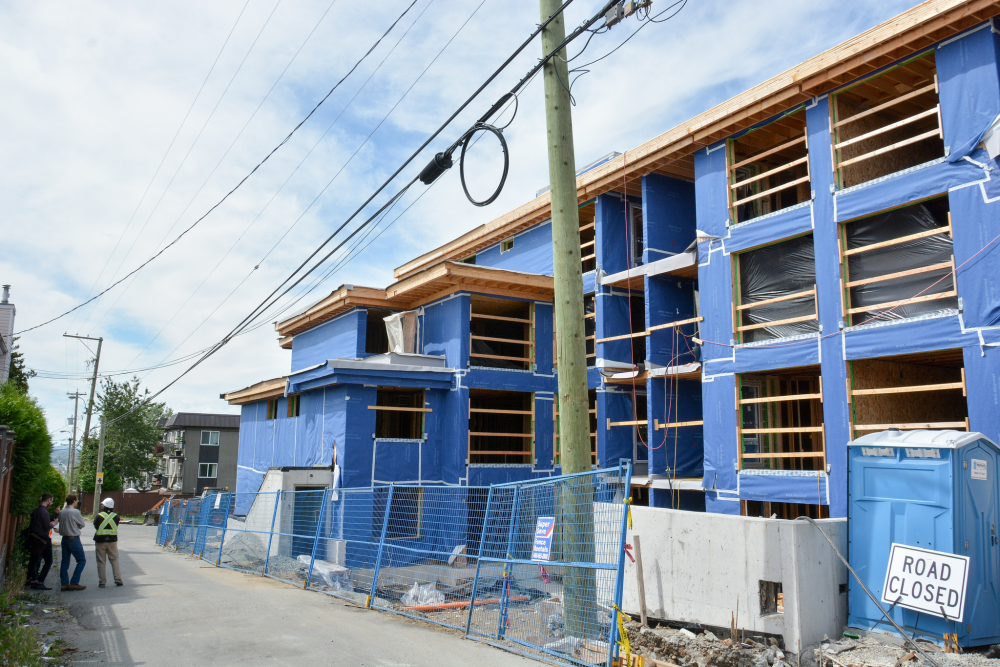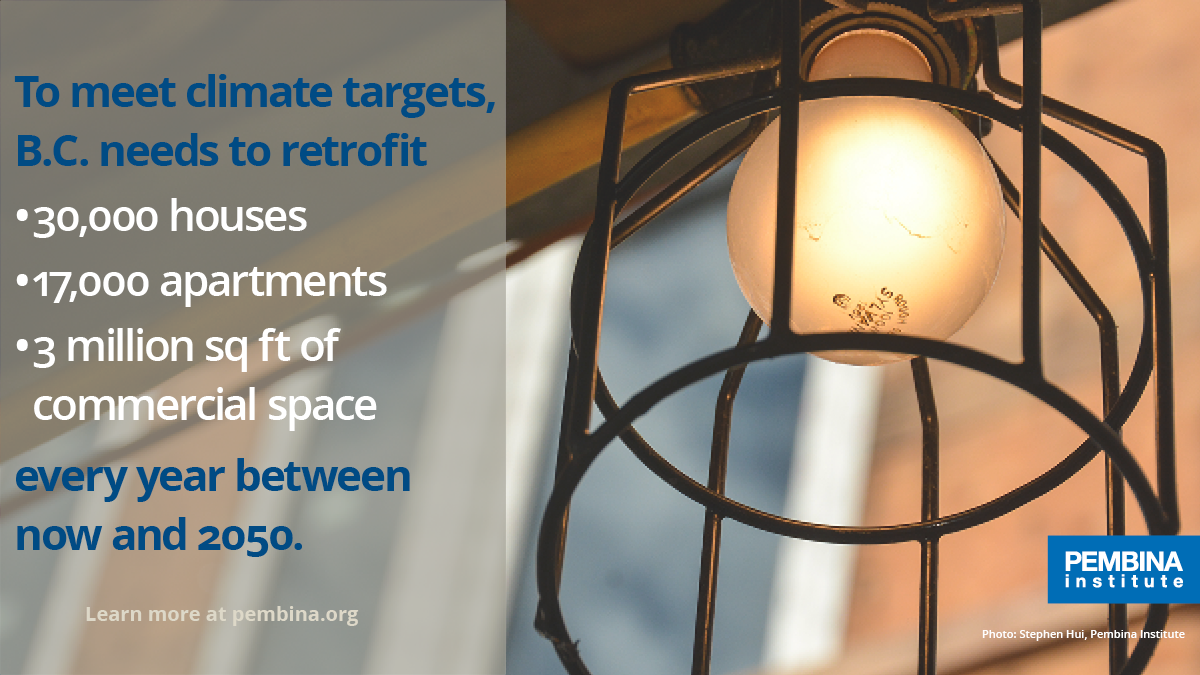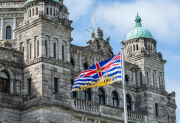B.C.’s new climate plan outlines an ambitious suite of measures projected to cut carbon pollution from the built environment by 40% by 2030. CleanBC, however, leaves some critical questions unanswered, particularly with respect to preparing our existing homes and buildings for the clean future.
By 2050, we need to eliminate carbon pollution coming from buildings. It’s estimated 70 per cent of buildings standing today will still be in use as of 2050. Between now and then, we will have only one or two can’t-miss opportunities to retrofit each of these buildings.
In the coming year, we need more clarity on the roadmap for buildings beyond 2030 and all the way to 2050 — particularly concerning electrification, fuel choices, and the role of utilities in this transformation. By pursuing these opportunities, we can reduce our carbon pollution while saving money, creating local jobs, and opening export markets for B.C.-made components and designs.
Tom-Pierre Frappé-Sénéclauze
Director of buildings and urban solutions, Pembina Institute
Powell River Peak published this letter to the editor on January 7, 2019.







